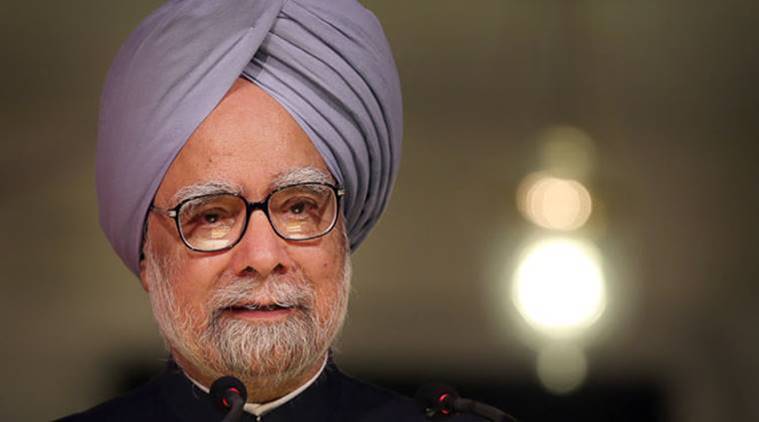
Former Prime Minister Manmohan Singh said Sunday that the present nuclear order is “coming under strain” and that today’s “nuclear age is best described as an age of asymmetry, asymmetry in terms of doctrines, arsenals and technology”. He said that this is the reason the “most important challenge today is to ensure that the nuclear taboo that has prevented its use since 1945 continues to be preserved”.
Speaking at the launch of a book by Rakesh Sood, titled “Nuclear Order in 21st Century”, Singh said, “the world is becoming increasingly concerned about growing nuclear risks”. Some of the old arms control agreements are being consigned to history, he said and several countries “are modernising their nuclear arsenals with tactical and low yield weapons, increasing the likelihood of their use”.
The nuclear disarmament goal, he said “seems to be receding” and the Cold War era’s “nuclear deterrence theories” are being redefined “by strategic thinkers in a world grappling with the threats of rising nationalism, extremism and terrorism”.
He said there have also been changes in technology and it’s easier to acquire nuclear technology today. “This generates new proliferation risks and challenges,” said Singh. He added that “new uncertainties are being created, thanks to developments in Artificial Intelligence, and growing space and cyber vulnerabilities” and globally, leaders are “concerned that these lead to greater unpredictability and compress the timelines for decision making” which can lead to “unintended escalation, increasing the likelihood of a nuclear strike”.
Multi-polarity, the former Prime Minister said, has become a reality in the global economy, “but the political structures have yet to overcome the inertia of outmoded thinking”.
India, he said, is a “sui generis nuclear weapon state” as it is a “reluctant nuclear weapon state, unlike others that began their nuclear quest with a military rationale”. Unlike any other nation, he said, India had an extensive and advanced peaceful nuclear programme “before we were compelled to shift in response to security threats and the only one that exercised nearly a quarter century of restraint after having demonstrated its technical capability”. This is why, he said, India’s nuclear doctrine is based on a “credible, minimum deterrent and successive governments have also reiterated India’s commitment to a no-first-use policy”.
India’s special waiver from the Nuclear Suppliers Group in 2008 is a “clear acknowledgement of our impeccable non-proliferation credentials and our responsible posture”, said Singh. He said it has given him “deep personal satisfaction” that it was under him that the negotiations for the civilian nuclear agreement was signed.